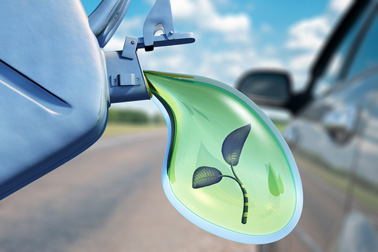
So you have an eco car, or are about to buy one. Unless it’s fully electrically powered, which is rare, you’ll still be using fuel, since hybrid eco cars are the current standard. The fuel of choice for eco cars are biofuels. But what are they, and what are their pros and cons?
As the name suggests, biofuels are produced from plant materials, rather than petrochemicals. This is obviously a good thing, since concerns about dwindling oil resources have been sounded for decades. Biofuels are a renewable resource, and that surely can’t be worse than using billions and billions of gallons of fossil fuels.
There are two principal kinds of biofuel that are of interest to people wanting to green their driving with eco cars. Bioethanol is an alcohol that in theory can be used to power a vehicle, but in practice is added to biodiesel to increase efficiency, boost performance and reduce emissions. A typical blend is 10% bioethanol to 90% petrol, though the bioethanol component can be as high as 20%.
Biodiesel is the big one, and the most commonly used fuel in Europe. It’s not to be confused with green diesel, which uses a different process, to refine vegetable oils for use in vehicles. Biodiesels have the advantage of lower carbon emissions and its superior lubricating properties decrease wear and tear on engines and parts, prolonging vehicle life.
Though not suitable for all cars, especially older models, the car manufacturers have accepted biofuels as the way forward and are building engines accordingly. Second generation, improved biofuels are also in constant development. Another bonus is that, as a renwable resource, it has the potential to be cheaper for consumers and industry alike.
Lower emissions, renewable resources – what’s not to like, you may ask? The answer is that the product is a good one, even though it’s a long way off the ideal situation where eco cars produce zero carbon emissions. In the bigger picture, biofuels can never be carbon neutral because growing the crops uses energy, and plenty of it, from growing it through processing it and transporting the finished product to the pump in your local gas station.
More worrying is the impact of cultivation on world food supplies and environment. Ecologists and conservationists are concerned about the destruction of habitats to increase production of crops like corn and sugar cane and the impact on food availability when potential food crops are used for fuel instead. New technologies are attempting to address this, by experimenting with algae. There are even efforts to use urban trash for biofuels, by treating it with special bacteria.
When shopping for a biofuel car, check out what gas it can use and be aware that it’s not yet the universal panace to vehicle pollution. Still, properly produced, biofuels are a step in the right direction.

